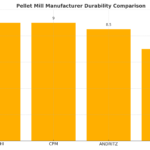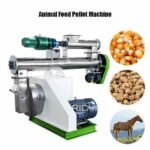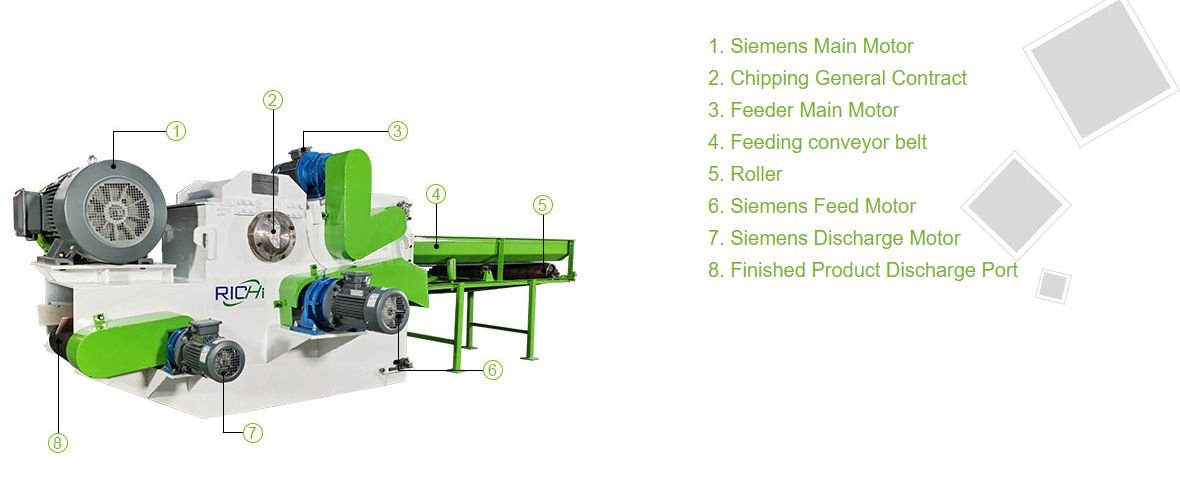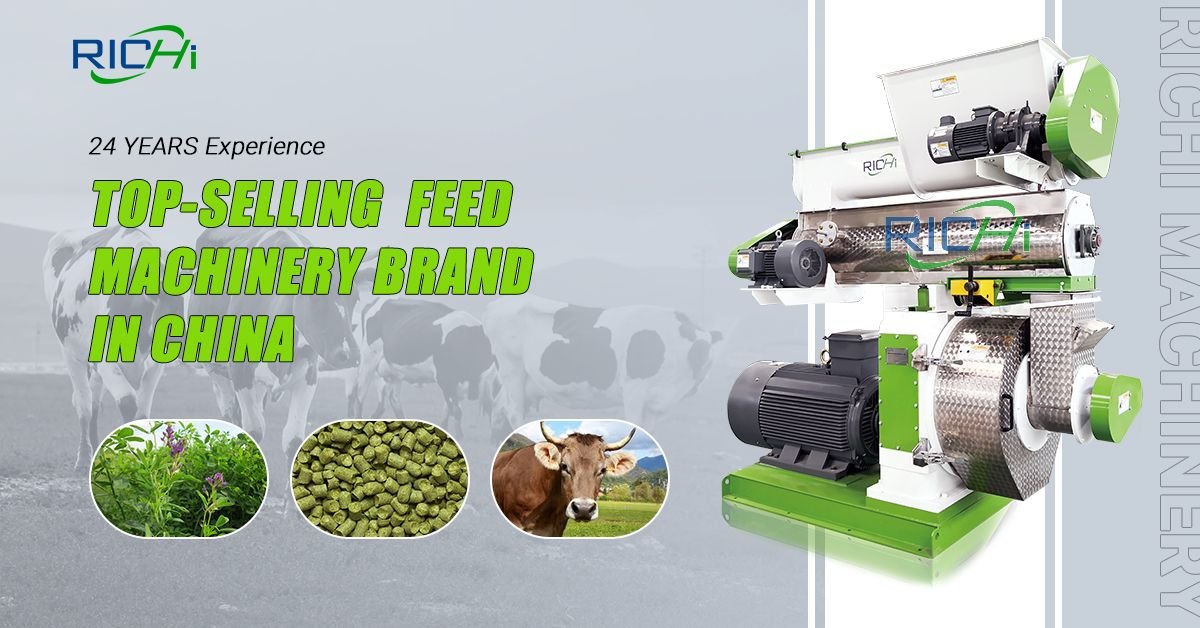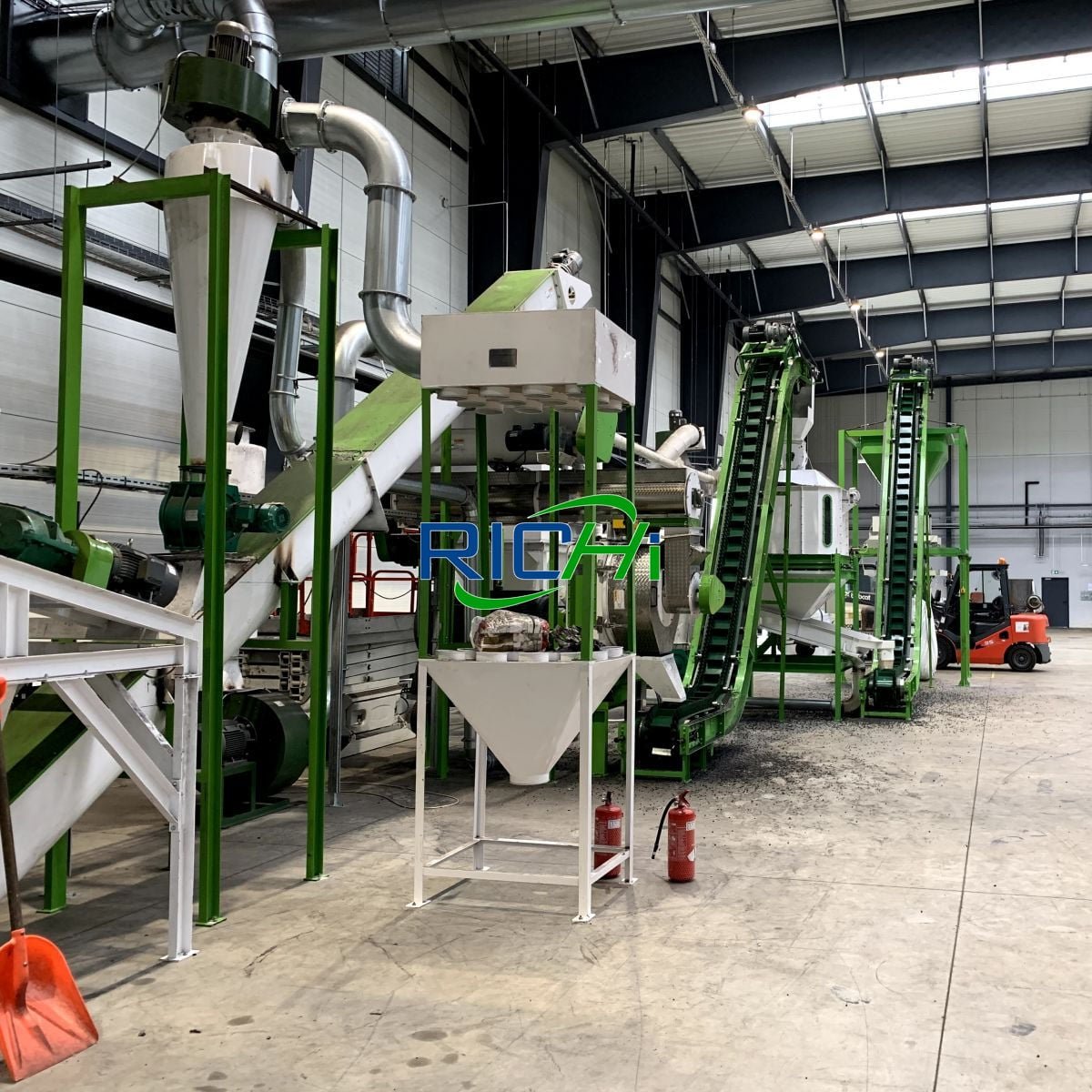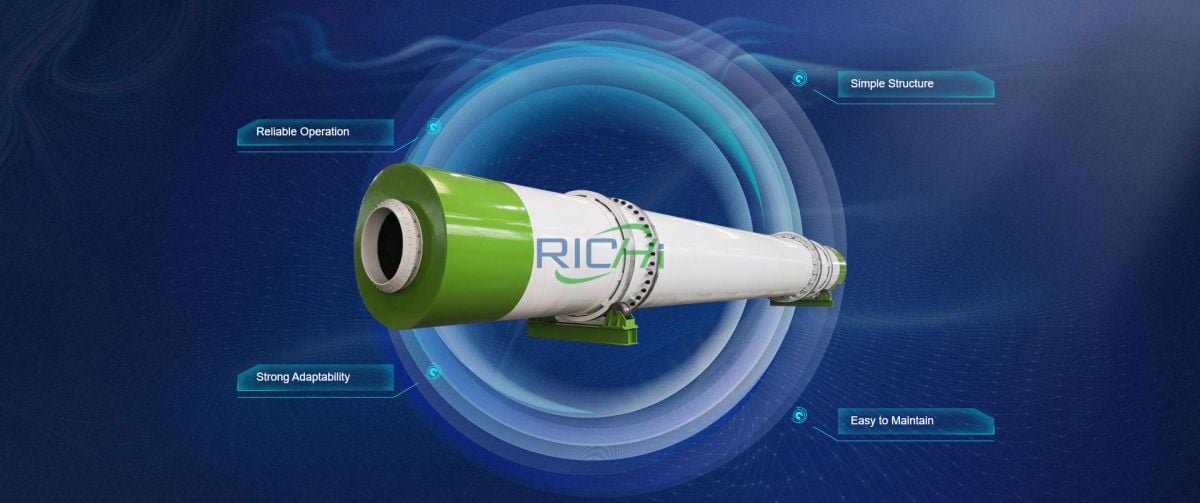Wood chipper machines are essential tools in the forestry, landscaping, and biomass industries, effectively reducing large pieces of wood into manageable chips. These machines are powered by different energy sources, primarily electric motors and diesel engines. Understanding the differences in energy consumption between electric and diesel wood chippers is crucial for optimizing operational efficiency and cost-effectiveness. This article examines the factors influencing energy consumption in both types of wood chippers and argues why electric wood chippers may be the better choice.
Energy Consumption in Electric Wood Chippers
Electric wood chippers operate using electric motors, which offer several advantages regarding energy consumption:
- Energy Efficiency: Electric motors are generally more energy-efficient than internal combustion engines, converting a higher percentage of electrical energy into mechanical energy and minimizing energy waste. For instance, a typical electric wood chipper with a 75 HP motor operates at high efficiency, utilizing most of the electrical input for productive work.
- Consistent Power Output: Electric motors provide a stable power output without the fluctuations often seen with diesel engines. This reliability ensures efficient operation and optimal energy use, helping maintain a consistent feed rate and chip size.
- Low Operational Costs: Electricity is often less expensive than diesel fuel, particularly in regions with stable and affordable electricity. This cost difference can lead to significant savings over time. Additionally, electric wood chippers tend to have fewer moving parts, which reduces maintenance costs and downtime.
- Environmental Impact: Electric wood chippers produce no direct emissions, making them more environmentally friendly. This characteristic is especially important in urban or environmentally sensitive areas. Utilizing renewable energy sources to power electric chippers can further lower their carbon footprint. (Related post: wood hammer mill)
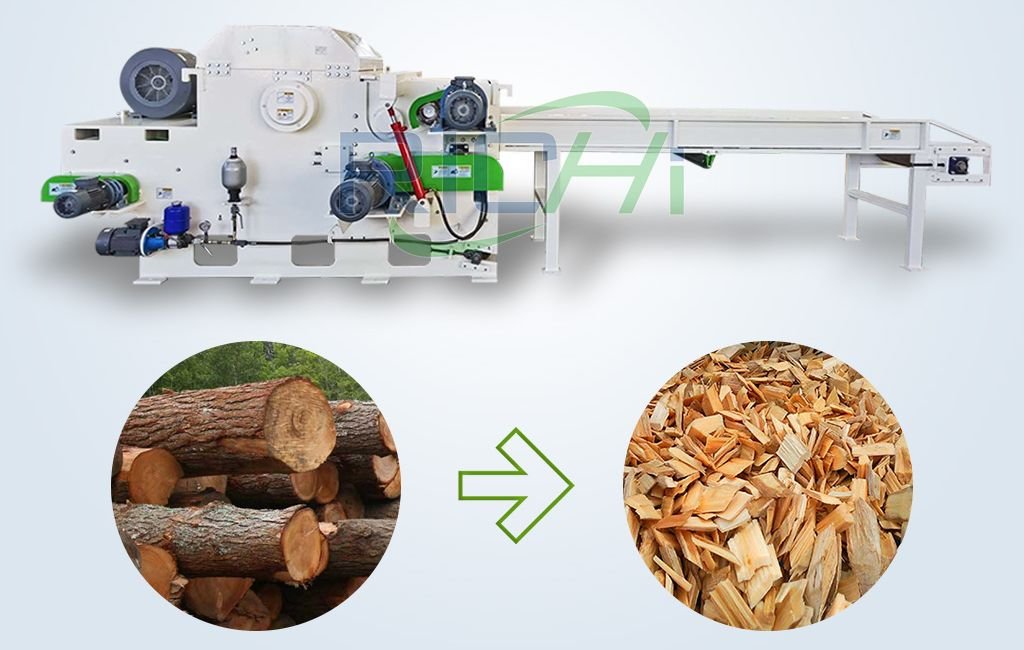
Energy Consumption in Diesel Wood Chippers
Diesel wood chippers rely on diesel engines, which have distinct characteristics affecting their energy consumption:
- Fuel Efficiency: Diesel engines are known for their fuel efficiency and high torque output, which can be advantageous for heavy-duty chipping tasks. However, their efficiency can vary based on load conditions and maintenance practices.
- Variable Power Output: While diesel engines can provide variable power output suitable for handling different types and sizes of wood, this variability may lead to less efficient energy use compared to the consistent output of electric motors.
- Higher Operational Costs: Diesel fuel is generally more expensive than electricity, with prices fluctuating significantly based on market conditions. Diesel engines also require regular maintenance, such as oil changes, filter replacements, and fuel system servicing, contributing to higher operational costs.
- Environmental Impact: Diesel engines emit pollutants, including carbon dioxide, nitrogen oxides, and particulate matter, contributing to air pollution and environmental degradation. Compliance with emissions regulations can add to the complexity and costs of operating diesel wood chippers.
Case Study: Comparing Operational Scenarios
Consider a scenario in which a small to medium-sized wood processing plant must choose between an electric and a diesel wood chipper for processing 2 tons of wood chips per hour.
Electric Wood Chipper:
- Model: Yes Square Electric Wood Chipper
- Power: 75 HP electric motor
- Energy Consumption: Approximately 55 kWh per hour
- Operational Cost: Assuming an electricity cost of $0.12 per kWh, the hourly operational cost is $6.60.
- Maintenance: Lower maintenance costs due to fewer moving parts and no need for fuel system servicing.
Diesel Wood Chipper:
- Model: Equivalent diesel-powered chipper
- Power: 75 HP diesel engine
- Fuel Consumption: Approximately 3.5 gallons of diesel per hour
- Operational Cost: Assuming a diesel cost of $3.00 per gallon, the hourly operational cost is $10.50.
- Maintenance: Higher maintenance costs due to regular engine servicing, oil changes, and filter replacements.
In this scenario, the electric wood chipper presents lower operational costs and reduced maintenance expenses, making it a more cost-effective choice over time.
Advantages of Electric Wood Chippers
- Cost Savings: Lower energy costs due to the higher efficiency of electric motors and cheaper electricity prices. Reduced maintenance costs and downtime compared to diesel engines.
- Environmental Benefits: Zero direct emissions contribute to cleaner air and a reduced environmental impact. The potential use of renewable energy sources enhances sustainability.
- Operational Efficiency: Consistent power output ensures efficient and reliable operation. Quieter operation compared to diesel engines improves working conditions.
- Regulatory Compliance: Easier compliance with environmental regulations due to the absence of emissions.
Conclusion
While both electric and diesel wood chippers have their advantages, electric wood chippers typically provide better energy efficiency, lower operational costs, and a reduced environmental impact. These benefits make electric wood chippers a superior choice for many applications, especially in areas with stable and affordable electricity supplies.
For small to medium-sized wood processing plants, the long-term cost savings and environmental benefits of electric wood chippers can outweigh the initial investment. By carefully considering their specific needs and operational conditions, businesses can make informed decisions that optimize energy consumption and enhance overall efficiency.
As technology continues to advance, the performance and affordability of electric wood chippers are likely to improve further, making them an even more attractive option for various wood processing applications.
For details please contact: Richi Pellet Machine
WhatsApp:86 138 3838 9622
Email:enquiry@richipelletmachine.com



